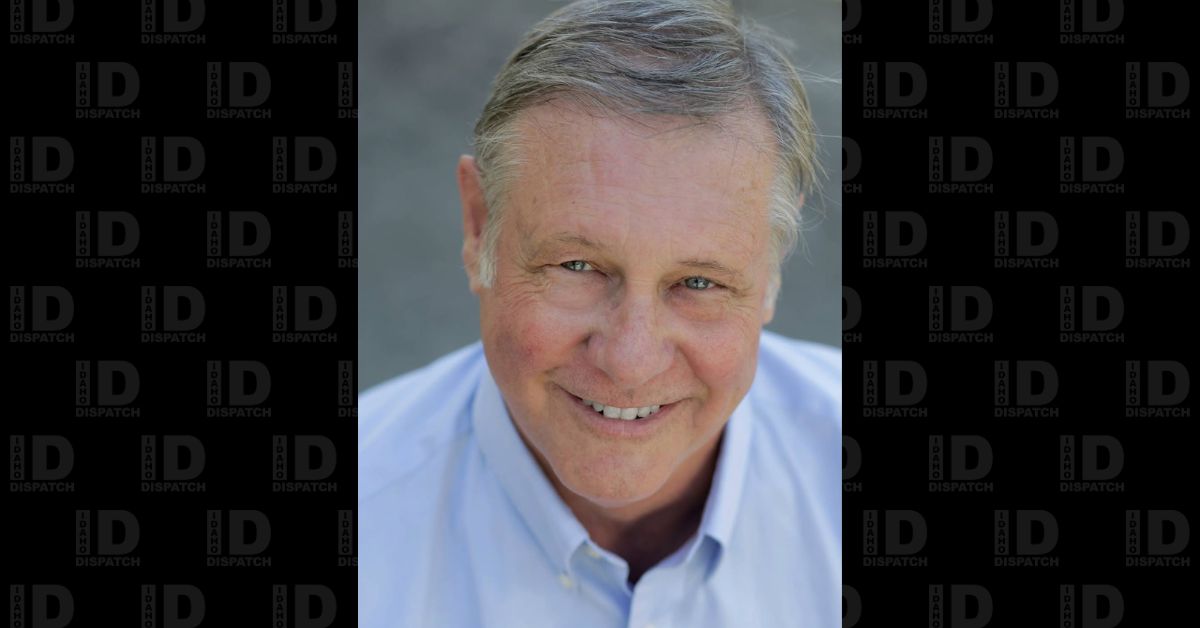
Op-Ed: American Concentration Camps – History Repeated
By James Wilson • January 21, 2025The following Op-Ed was submitted by Rev. James Wilson. Op-Eds do not necessarily reflect the views and opinions of those at the Idaho Dispatch.
Yoshida Uchida is a historian of America’s concentration camps. She lived in them during the second world war; she has written about them in her novel, Journey to Topaz, and her autobiographical history, Desert Exile. These stories document the atrocity done to native born American citizens who happened to be of Japanese descent. The excuse? Their country of ancestry attacked the United States in 1941; they themselves never did anything but express their undying loyalty to their country of birth.
They exist not as an indictment so much as a grim reminder of how easily we can become the people we despise. The only existential solution – the only possible response – to such a reminder is a lifestyle of repentance. God alone can provide such a solution, and the rest of us alone can walk in it. This response does not stop at addressing the issue; it issues abundant blessing. There need be no existential alternative. But is it – the dilemma and the denouement – really so stark and so simple?
Shortly after Pearl Harbor Curtis Munson – representing the United States Department of State – reported an extensive survey of Japanese Americans demonstrating “an extraordinary degree of loyalty in their community.” Whether Issei – Japanese born but permanent residents – or Nisei – American born citizens – the results were virtually the same. Yet Earl Warren, California’s Attorney General, testified before Congress that the Japanese had “infiltrated every strategic spot” in California. This is the same Earl Warren who served two terms as California’s governor before his appointment as Chief Justice of the United States Supreme Court. This is the same Earl Warren who engineered the unanimous vote to end school segregation in Brown vs Topeka Board of Education, and pioneered so many landmark civil rights decisions that shredded the veil of racism against black people. Yet racism is racism, and if we do not play the bigot with one – or many – ethnic groups, that fact does not insulate us from our own bigotry when the dignity and worth of another tribe is at stake.
Racism bears three features that always obtain. The first is that it never springs up fully grown in a time of crisis; it is always nascent and notorious for those courageous enough to look with clear eyes. The Uchida family experienced their first dose of the poison as early as 1917. They had just moved into a rental house – Japanese were not permitted to own property in America – in Oakland, California. They were still unpacking when they received a visit from members of the “Santa Fe Improvement Society,” a group of anonymous Oakland residents dedicated to keeping undesirables – by their reckoning – out of Oakland. Yoshika’s father, Dwight, asked to meet with the leaders and – after their meeting – received the group’s blessing to remain in their home.
The incident reveals two important truths. One is that the Ushida’s were lucky they were not visited by the Klan; these racist gentlemen stopped short of violence and ultimately proved willing to listen to reason. The other – and more important – is that when we take the trouble to engage with each other we usually discover quickly that all tribes share the same virtues and vices, spread pretty evenly, and reason can prevail if permitted by both sides.
The second feature is the universal role played by deception in the practice of racism. During the second world war, Nazis sought to hide their death camps despite their conviction that exterminating Jews was a good thing. Japanese tried to conceal the atrocities they committed against prisoners they considered inferior to themselves. In California internees held at the Tanforan Race Track near San Francisco performed all kitchen functions for the thousands of prisoners until the army decided to film a documentary of the facilities in operation. They quickly switched out the Japanese workers for white soldiers, made their film, and then switched the workers back. Reality is that every human being knows at some level that racism is deeply wrong; racists stop at nothing to justify their bad behavior, or convince themselves they are the exception.
The third feature is the universal human lust to find simple solutions for complex issues. Pearl Harbor was the result of a comprehensive and catastrophic failure of US military intelligence and decades of isolationism that left us unprepared for a war anyone could see was coming. Unwilling to even attempt to grasp the complexities, most Americans took perverse comfort in the idea of Japanese traitors living amongst us. It had to be them, because it couldn’t be us!
As recently as 1982 substantial numbers of Americans believed Japanese farmhands had carved signals in Hawaiian cane fields to guide the bombers to Pearl Harbor. There was zero evidence, and so authorities in Hawaii never resorted to measures routinely taken on the mainland. Neither did Hawaiians of Japanese descent lose homes and businesses to opportunists who took advantage of people given ten days to liquidate their property.
Does this prove America actually is systemically racist? No more than it proves every other nation on earth – no exceptions – was founded and developed on the backs of exploited minority ethnicities. The universal sin of racism is grounded not in racial bias, but in the very essence of sin, which is expressed elegantly, cynically, and hypocritically as “survival of the fittest.” The solution is just as elegant and just as simple. Let all men and women – including those who have been exploited, for all have exploited others at some point – repent for seeking self-reliant solutions instead of waiting on God to reveal how He would deal with people He created. Having repented, we become able to do unto others as we would have them do unto us. (It worked every time in the Old Testament.) And we will be blessed.
James A. Wilson is the author of Living As Ambassadors of Relationships, The Holy Spirit and the End Times, Kingdom in Pursuit, and his first novel, Generation – available at Barnes and Nobles, Amazon, or at pr************@gm***.com
Tags: American Concentration Camps, History, James Wilson
One thought on “Op-Ed: American Concentration Camps – History Repeated”
Comments are closed.








Hello,
There is one crucial event missing in your Op-ed regarding the actions of Japanese on the Island of Hawaii. A lone Japanese pilot, after bombing Pearl Harbor, was instructed by the Japanese Imperial Navy to “crash land”, on a supposed un-inhabited island adjacent to Kauai if unable to return. The island did have a small community of mostly native Hawaiian speakers and 3 Japanese of various origin. The pilot was captured upon crashing, however, the 3 Japanese island residents gave not only aid and comfort to the Japanese pilot, they provided arms and fought with him against the islanders. The islanders under the leadership of Ben Kanahele, fought bravely and overpowered the Japanese pilot and his allies. The action was so valiant, the United States awarded Ben Kanahele the Purple Heart. It is incredibly rare for a civilian to receive this award, but the actions of Ben were so heroic, the US military felt it more than justified to do so. Because this was one of the first interactions between Japanese military and domestic Japanese Americans, it is thought this was a primary reason for the drastic action of internment for Japanese of various origin in the United States. Considering the 442 Japanese American infantry unit is one of the most decorated in all of WWII, the actions of these brave men more than made up for the actions of the 3 on a Hawaiian Island, and proved that we were wrong to imprison people of the orgin of our enemy. Moreover, the MIS Military Intelligence Service MIS, was a secret unit of 2nd generation Japanese, who worked as translators, interrogators, etc. in almost every campaign against the Japanese in the Pacific, and they were vital in saving countless American G.I., from certain death with the information provided. You can read further about both of these events here:
https://www.hawaiireporter.com/niihau-incident-benehakaka-ben-kanahele-wwii-medal-for-merit-purple-heart-1891-1962/
https://www.njahs.org/misnorcal/essay.htm